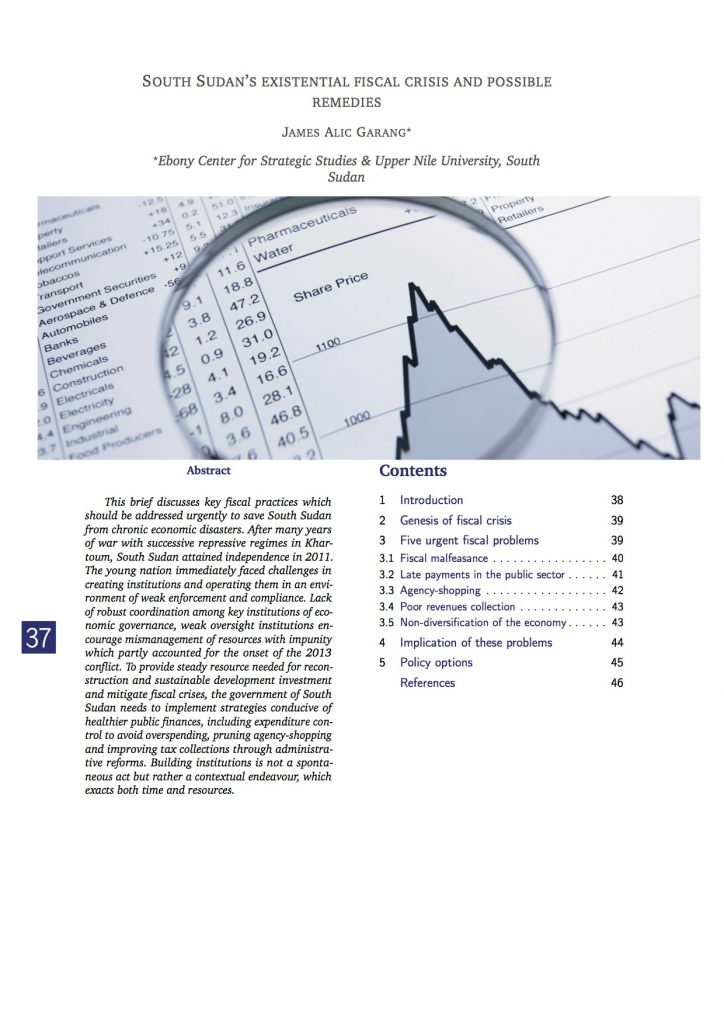 This brief discusses key fiscal practices which should be addressed urgently to save South Sudan from chronic economic disasters. After many years of war with successive repressive regimes in Khartoum, South Sudan attained independence in 2011. The young nation immediately faced challenges in creating institutions and operating them in an environment of weak enforcement and compliance.
This brief discusses key fiscal practices which should be addressed urgently to save South Sudan from chronic economic disasters. After many years of war with successive repressive regimes in Khartoum, South Sudan attained independence in 2011. The young nation immediately faced challenges in creating institutions and operating them in an environment of weak enforcement and compliance.
Lack of robust coordination among key institutions of economic governance, weak oversight institutions encourage mismanagement of resources with impunity which partly accounted for the onset of the 2013 conflict. To provide steady resource needed for reconstruction and sustainable development investment and mitigate fiscal crises, the government of South Sudan needs to implement strategies conducive of healthier public finances, including expenditure control to avoid overspending, pruning agency-shopping and improving tax collections through administrative reforms. Building institutions is not a spontaneous act but rather a contextual endeavour, which exacts both time and resources. Read the full Policy Brief.
